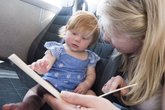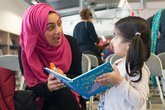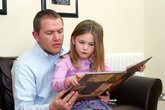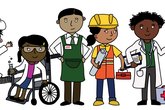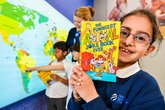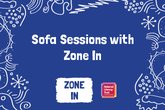Using your pack - tips and activities

As a parent you can make all the difference to your child’s communication skills. Helping your child learn to communicate will help them develop good relationships, do well at school and be confident and happy.
Check out these ideas for fun activities you can do with your baby and child as they grow, to help your children develop their skills.
We've also suggested fun activities for you to try on Words for Life for each age group.
Baby to 3
You can encourage your baby to develop their language skills from the day they are born.
Talking from day one and listening to your baby respond will help the two of you get to know each other and give your child a great start to communication.
Age 3 to 5
Your child will love it if you can spend time talking and reading with them. Ask them what they have enjoyed doing during the day or ask them questions about a book you have read together.
You could join the library together - it’s a great way to get reading and it’s free! Or you could visit your local book shop to choose a book together.
Age 5 to 7
You can help your child to learn just by playing games with them.
Can they guess the animal you’re describing from a few clues? You could also write a shopping list together and get your child to tick off the items as you shop. Or you could play a game of opposites – you say “hot” or “funny” and see what response you get. Or read a familiar story and chat about it.
Age 7 to 11
Spend time talking to your child about what they are studying at school.
You could work with them to make lists of words for their school topics and use a dictionary together to find out their meanings. Get your child to make up a story to tell you and other family members, especially younger brothers or sisters. Or talk together about the books your child is reading or the TV programmes they are watching.
Age 11 to 14
Moving to secondary school and getting ready for your GCSE years can feel like a step up.
It's important to continue talking about school life with your children as they get older and start to discover their favourite subjects. Good literacy skills help pupils perform well across lots of different subjects as well as English. At this age, reading for pleasure starts to drop so we've created resources that provide an incentive to read and fine tune literacy skills.
-
Complete online reading challenges to unlock beatboxing, break dancing and freestyle football tutorialsLearn more
-
Hear from some of the UK's most exciting poets about their experiences as writersLearn more
-
7 top tips from employees at top law firm Cleary Gottlieb to help manage your time and keep motivated.Learn more
Age 14 to 18
Thinking about next steps can feel huge so we've got content from lots of different role models to help teenagers and young adults think about their future. We've also got tips all about making the most of your literacy skills to help you stand out from the crowd.
-
Find out what it's like to work in different industries and perfect your CVLearn more
-
A book club for all women and non-binary readers aged 16 and over celebrating brilliant books with women at the centre of the story.Learn more
-
Hear from people who turned their lives around after being excluded from school.Learn more


